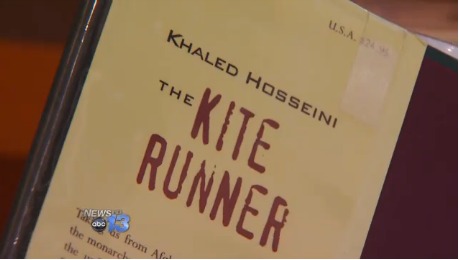 NCAC and 7 other organizations committed to defending the freedom to read are urging a Arizona school district to reinstate Khaled Hosseini’s The Kite Runner Khaled Hosseini’s The Kite Runner in its English curriculum after the book was removed without explanation or prior review. The groups argue the district’s decision is unwarranted and does an educational disservice to its students by depriving them of access to a novel that explores salient and timely themes.
NCAC and 7 other organizations committed to defending the freedom to read are urging a Arizona school district to reinstate Khaled Hosseini’s The Kite Runner Khaled Hosseini’s The Kite Runner in its English curriculum after the book was removed without explanation or prior review. The groups argue the district’s decision is unwarranted and does an educational disservice to its students by depriving them of access to a novel that explores salient and timely themes.
At the end of March, Arizona’s Higley Unified School District decided to remove the book after 5 years in its English curriculum. In a faculty email, teachers were instructed not to use the work in lessons or assign it as a piece of independent reading. A report in a district school’s student newspaper, which broke the news of the removal, stressed that “no reason whatsoever was given for this unprecedented…action.” Although faculty objected to the decision, arguing that no justification or discussion was provided before it was made, the district responded to the criticism in a statement claiming it “does not ban books” but “makes every effort to select books for use in classes that reflect community standards.”
NCAC’s letter to the school district underlines that by flouting adequate review processes in selecting curricular materials and instead relying on the vague, subjective notion of “community standards”, a precedent is set for frivolous challenges to curricular materials that prioritize the perspective of one community group over every other. A political or religious special interest group could cite its own “community standards” when challenging books that feature LGBT themes, for example. The letter stresses that curricular decisions must be made using educational experts and offers to assist the district in establishing an effective challenge policy.
The letter is signed by the Comic Book Legal Defense Fund, National Council of Teachers of English, American Booksellers for Free Expression, Society of Children’s Books Writers and Illustrators, Association of American Publishers, Authors Guild and PEN America.
Read the letter below; click here for a full screen view.

